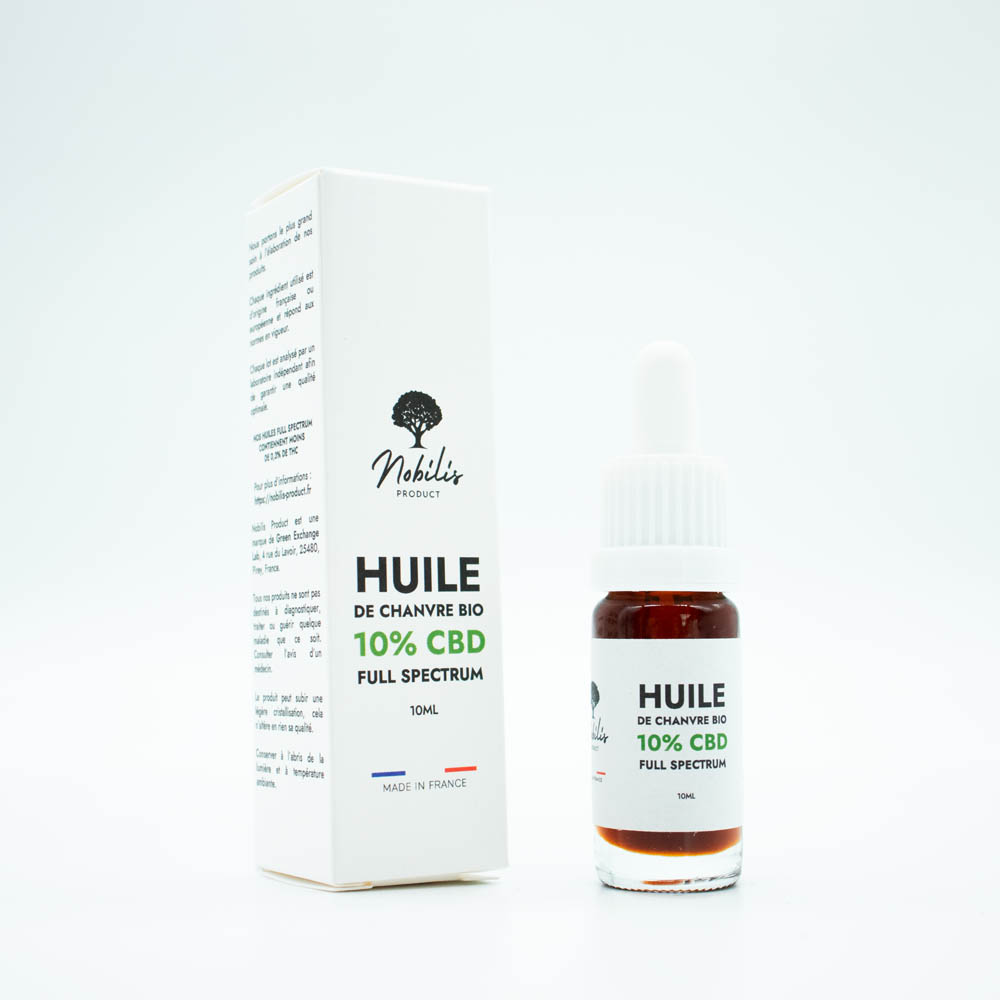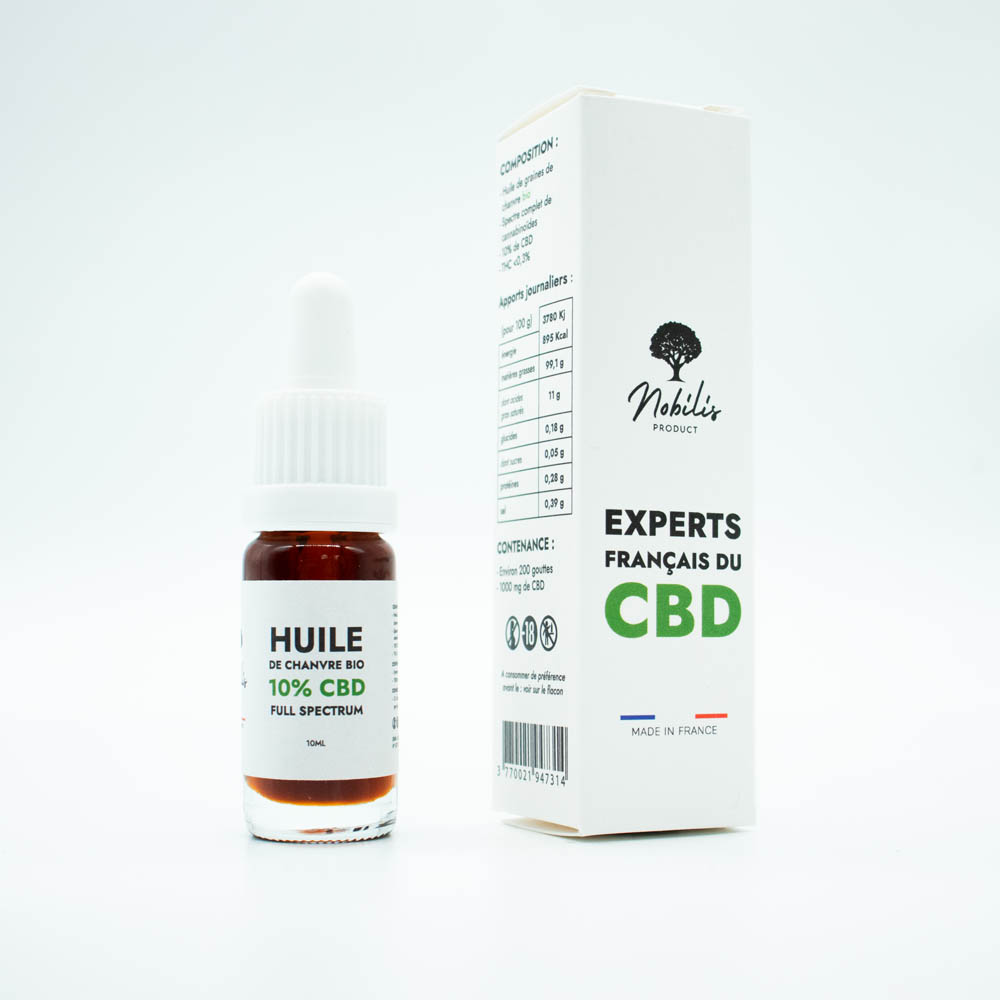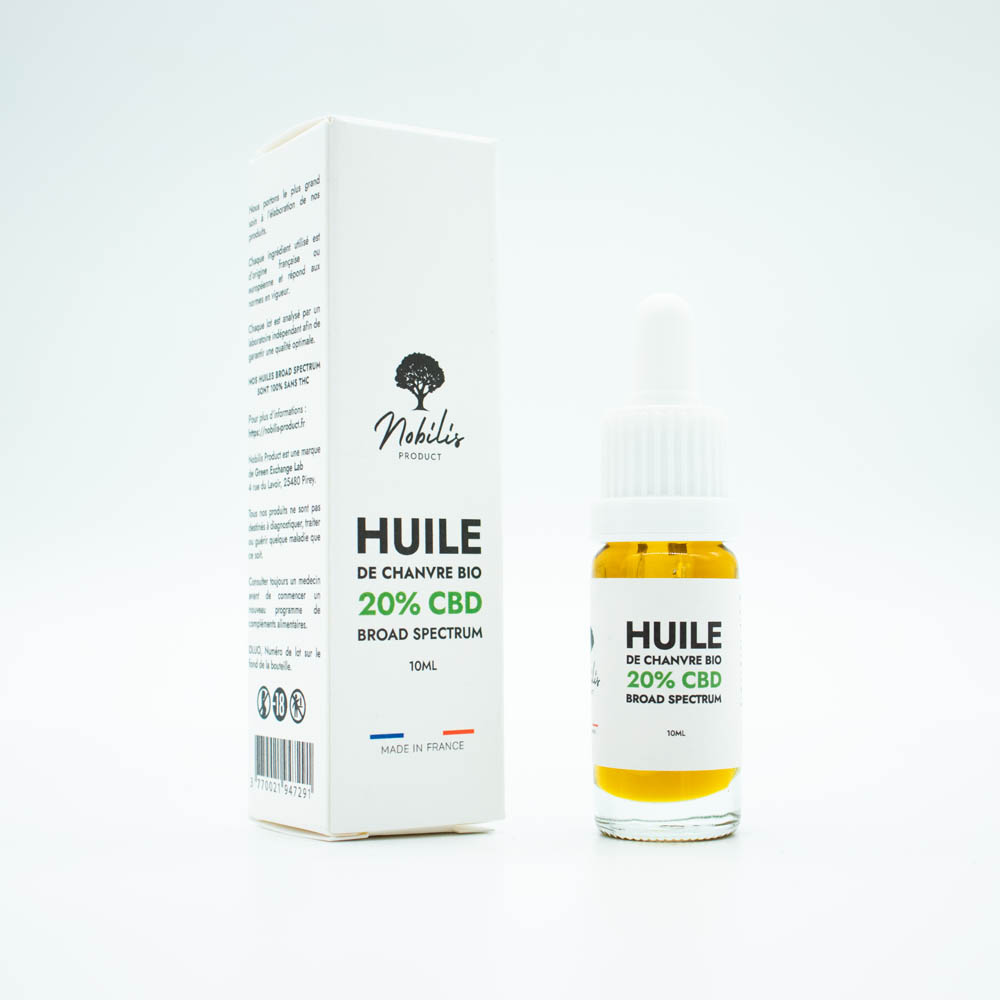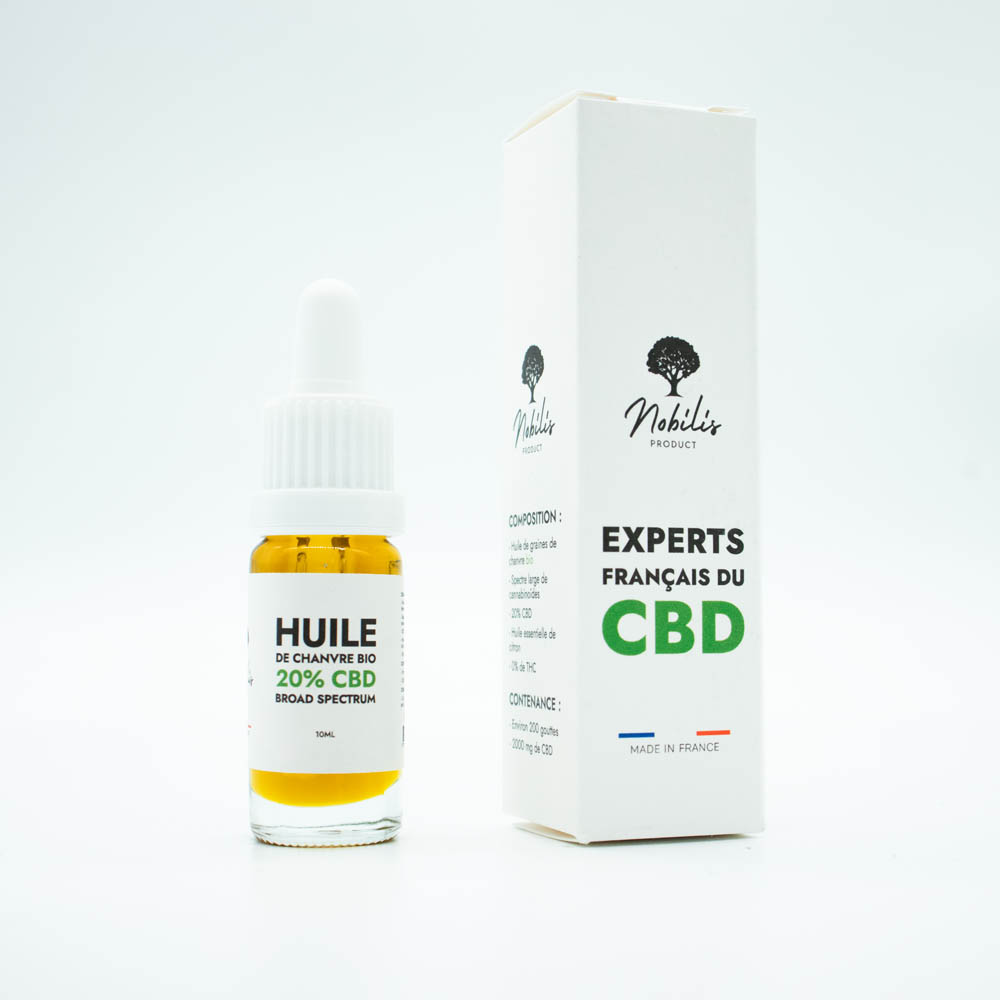Alzheimer's is an incurable neurodegenerative diseaseAlzheimer's disease is an incurable neurodegenerative disease, and despite existing palliative treatments, the quality of life of sufferers declines inexorably. These treatments are not always effective, and are accompanied by numerous side effects.
In recent years, Alzheimer's drugs have no longer been reimbursed by the French social security system, prompting sufferers and their families to seek out other ways of relieving symptoms.
Possible alternatives include medical cannabis in countries where it is authorized, as well as CBDin France and Europe.
Table of contents
Alzheimer's disease: causes, symptoms and treatments
Alzheimer's disease was identified in 1906 by the German psychiatrist Aloï Alzheimer. Since then, although no cure has yet been found, the medical profession's understanding of the disease's mechanisms is improving all the time.
What causes Alzheimer's disease?
Alzheimer's is a neurodegenerative disease, which means that it affects the nervous system. More specifically, it affects the connection between neurons located in the cerebral cortex, in the hippocampus, the seat of memory [1].
The degradation of neurons is caused by two phenomena specific to the disease:
- The appearance of senile (or amyloid) plaques around neurons. These plaques are due to an accumulation of amyloid beta protein;
- Neurofibrillary degenerationNeurofibrillary degeneration is the disorganization of neurons. It is caused by a dysfunction of the Tau protein, which is involved in the formation of the cell skeleton.
We don't know the cause of these phenomena, but we do know what the risk factors are
- Age. In fact, 20% of people over 80 suffer from Alzheimer's disease;
- Genetic terrain. Although Alzheimer's is not hereditary, there are certain genetic markers specific to the disease;
Healthy living. A sedentary lifestyle, isolation, poor diet, smoking, alcohol ...
How does the disease manifest itself and what are the symptoms?
The diagnosis of Alzheimer's disease is based on the appearance of 3 major symptoms:
- Cognitive disorders cognitive disorders: language difficulties, difficulty performing certain gestures, tasks, planning, etc. ;
- Memory loss Memory loss: difficulty recognizing people around you, remembering events near and far;
- Disorientation in time and space.
These symptoms appear gradually. In fact, Alzheimer's disease is characterized by several stages, the duration of which varies from person to person. On the other hand, virtually all Alzheimer's patients suffer from stress, anxiety and sleep disorders. This may be due to the disease itself, or to treatment.
What treatments are available for Alzheimer's?
As we mentioned earlier, Alzheimer's disease cannot yet be cured. Yet, patients are prescribed 4 symptomatic treatments treatments: donepezil, memantine, rivastigmine and galantamine.
These drugs act on the levels of key neurotransmitters involved in cognitive and motor functions: acetylcholine and glutamate. Although their efficacy is generally well known, they are accompanied by disabling side-effects, and the risk of interaction with other treatments is high.
Is CBD a potential treatment for Alzheimer's?
To date, there is no evidence that CBD (or cannabis) can slow the progression of Alzheimer's disease.
However, several studies suggest that the endocannabinoid system system is involved in some of the processes that lead to Alzheimer's disease. CBD could therefore represent a serious potential treatment.
Good to know
The endocannabinoid system is a group of neurotransmitters whose common purpose is to ensure the body's homeostatic state. Our bodies synthesize substances that act directly on these receptors (AG-2 and Anandamide), but we also know that cannabis cannabinoids (CBD, THC, etc.) act on some of them too.
Although we don't yet understand the mechanisms of CBD's action on our endocannabinoid system, some observations show that :
- CBD has the ability to reduce neuronal inflammation and oxidative stress via a regulatory action on the immune system [2]. In the case of Alzheimer's, this action could slow down the phenomenon of neurodegeneration and thus the progression of associated symptoms;
- CBD is also thought to reduce the accumulation of amyloid beta and Tau proteins, thus slowing the progression of Alzheimer's disease. [3]
Although the results of preclinical studies are encouraging, further studies are needed before CBD can be a viable treatment for Alzheimer's.
CBD to relieve symptoms of Alzheimer's disease
CBD is not a treatment for Alzheimer's, however, thanks to its action on our endocannabinoid system, it could greatly improve the quality of life of those suffering from the disease.

Relieving chronic pain
Alzheimer's disease does not cause any particular pain. On the other hand, people suffering from it, generally of a certain age, are likely to suffer from osteoarthritis or arthritisdiseases that cause intense neuropathic pain. These pains substantially worsen the patient's general condition.
Several studies have demonstrated the analgesic action of CBD as well as its effectiveness in reducing the intensity of neuropathic pain. Among its mechanisms of action, CBD is said to act on serotonin synthesis. A neurotransmitter which, among other things, regulates pain perception [4].
To find out more, see our CBD and neuropathic pain dossier.
Taking CBD could therefore help Alzheimer's sufferers to reduce the intensity of pain caused by other pathologies, thereby improving their daily lives.
Improve sleep quality
Most people with Alzheimer's suffer from sleep disorders. In other words, they don't sleep, become restless and sometimes adopt a wandering behaviour.
This problem appears in the early stages of the disease, usually because the person worried about their state of health. Some studies also suggest that memory loss is linked to poor-quality sleep.
Whatever the cause, sleep disorders affect the patient's quality of life, as he or she continually feels tired. What's more, lack of sleep contributes to further deteriorate cognitive abilities.
In this respect, CBD can help combat insomnia [5], thanks to its action on serotonin levels, the neurotransmitter that controls the synthesis of melatonin, the sleep hormone.
Reduce stress and anxiety
The progressive loss of memory and cognitive functions fuels a constant state of stress and anxiety that affects the quality of life of Alzheimer's sufferers and makes the situation worse.
As we've explained on several occasions, it would appear that CBD can act on serotonin levels. Serotonin is a hormone that induces a state of calm and serenity. This is why many people suffering from stress andanxiety turn to CBD oil rather than traditional treatments such as antidepressants.
In this respect, taking CBD could be beneficial for Alzheimer's sufferers.
CBD oil and Alzheimer's disease: our advice
Although CBD oil cannot help Alzheimer's sufferers regain their lost memory, or significantly improve their cognitive abilities, it can help improve their daily lives.
Please note that we absolutely do not endorse self-medication. Seek the advice of a physician before taking CBD if you have Alzheimer's disease.
Which CBD oil to choose?
There are many options on the market, we advise you to take care to choose a quality CBD oil. In other words:
- An organically grown CBD oil;
- Preferably made in France;
- Accompanied by the results of laboratory analyses proving that the CBD oil contains no harmful agents and the concentration of CBD contained in the bottle.
-
CBD Oil 10% Full Spectrum - Nobilis Product
Rating 4.75 out of 524,90 €Discover our Full Spectrum 10% CBD oil from hemp grown in France, without additives or GMOs. Its richness in cannabinoids and terpenes guarantees an optimal surrounding effect for deep relaxation and natural well-being. Practical 10 ml bottle with pipette for precise dosage.
Our Full Spectrum 10% CBD oil is :
🇫🇷 Manufactured from A to Z (from hemp extraction to bottling) in our French laboratory.
🧪 Made with CBD crude to provide all the cannabinoids, flavonoids and terpenes.
✅ Analyzed by an independent laboratory for each batch to guarantee quality.
-
Broad Spectrum 20% CBD Oil - THC-free
Rating 5.00 out of 529,90 €Opt for our Broad Spectrum 20% CBD oil, a higher concentration for more powerful soothing and relaxing effects. Perfect for those seeking optimal relief from the natural THC-free benefits of CBD.
Our Broad Spectrum 20% CBD oil is :
🇫🇷 Manufactured from A to Z (from hemp extraction to bottling) in our French laboratory.
🧪 Made with CBD distillate to provide all the cannabinoids except THC.
✅ Analyzed by an independent laboratory for each batch to guarantee quality
We also recommend that you choose a full spectrum oilas it contains all the cannabinoids synthesized in the plant. According to some theories, this allows you to take advantage of the entourage effect, a guarantee of effectiveness. But if you don't want to consume THC (even less than 0.3%), then you can also buy a broad spectrum CBD oil.
What dosage?
CBD products are not considered to be medicinal products. official dosage. Moreover, as with any dosage, it depends on certain factors inherent to each individual, such as weight, age, medical history or intensity of symptoms.
For these reasons, we recommend starting with a low concentration of CBD oil (between 5 and 10%) at a rate of 3 to 5 drops a day. If no improvement is observed, the dose can be gradually increased.
CBD is not harmful to health, and does not cause psychotropic effects or addiction. Nevertheless, always seek the advice of your doctor.




